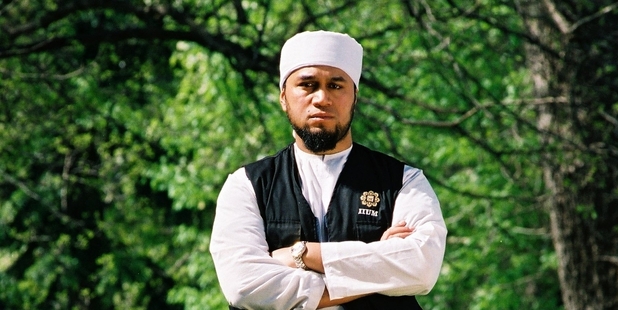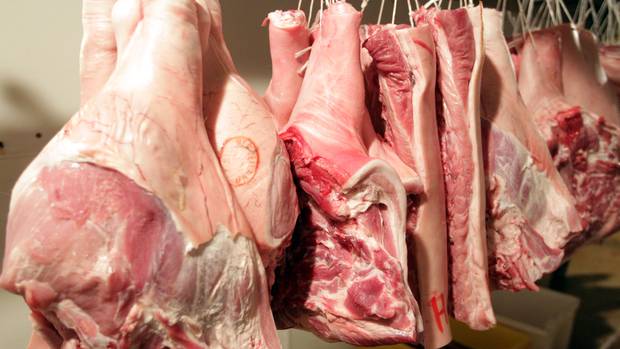Decades after destroying generations of Maori jobs with cheaply imported labour, FIANZ through its govt proxys are still using halal to dictate immigration laws here in New Zealand. They complain of a ‘worker shortage’, but won’t let locals do the job. Local butchers are fired for speaking against these very immigration practices!

NZ’s most famous halal butcher, leader of Islamic State in NZ, one of the worlds Top 500 Muslims, and all-round Mr. Nice Guy.
A plan to “reset” immigration policy, including potential limits on temporary migrant visas, could put New Zealand’s $3 billion halal meat earnings at risk.
Economic Development Minister Stuart Nash outlined the Government’s intended immigration reforms in a sweeping speech on Monday evening, which made repeated references to migrant-fuelled population growth exceeding the country’s capacity.
Sectors such as tourism and the primary industries would need to look elsewhere for employees in the future, he warned.
Meat Industry Association (MIA) chief executive officer Sirma Karapeeva said her industry required 250 halal slaughter workers throughout New Zealand, but had only filled 100 positions with a mixture of New Zealand residents and migrants on open work visas.
There was “simply not enough” Muslims in New Zealand prepared to move to the regions to take up employment despite efforts to entice them.
Any reduction in temporary migrant visas could significantly impact the $3 billion halal meat earnings, she said.
The industry employed 25,000 people directly in its processing plants and a small, but critical percentage of staff were temporary migrant workers, Karapeeva said.
“It’s very disappointing that the Government does not realise that migrant workers are so fundamental to this industry.”
MIA has been in talks with the Government, but Karapeeva did not believe there was flexibility in its policies.
“Despite the fact that we have proven we are resilient, our requests are falling on deaf ears.”
She urged the Government to give detail and clarity around what changes they were planning to enable companies to make the necessary commercial decisions.
Anzco Foods general manager of operations Darryl Tones said the wider meat industry was experiencing a worker shortage despite extensive attempts to recruit New Zealanders.
Temporary workers were a small but important part of Anzco’s business and enabled the company to operate at capacity during peak season, he said. Just over 3 per cent of their national workforce was made up of temporary workers with Canterbury doubling that rate at 6.18 per cent.
Access to temporary workers, particularly from the Pacific Islands was mutually beneficial with workers employed in steady jobs that enabled them to support their families while training in a range of skills, Tones said.
Mid-Canterbury based Agstaff managing director Matt Jones said when he began his agricultural recruiting business 20 years ago, the district had an unemployment rate under 1 per cent, which has remained largely static.
He said there was not enough people in the area to fill the food manufacturing and dairy sector requirements, and he had a lengthy waiting list of would be temporary workers from Europe, Asia and Canada wanting to fill the positions.
“Mid-Canterbury drives itself, and it continues to grow through prosperity. Not not every job is skilled but if we get them here on a temporary visa and up-skill them they will contribute.”
Hampstead rugby division one coach Robert Tito, who works closely with the Pacific Island community in Ashburton, said many had come into the area on temporary work visas.
The Pacific Island community brought “flavour” to the district and were vital to the local economy, he said.
So great was the shortage in meat workers and dairy jobs that Tito had been approaching unemployed people in Auckland to come south to work.
“It’s very sad if the Government is going to change the rules. It will put pressure on the agricultural industry especially in Ashburton.”
Prime Minister Jacinda Ardern, speaking earlier on Monday, said the Government wanted to ensure migrants who come to New Zealand had a “high quality experience”.
“We need to move a situation where we aren’t relying on overseas labour to support our economy,” she said.

